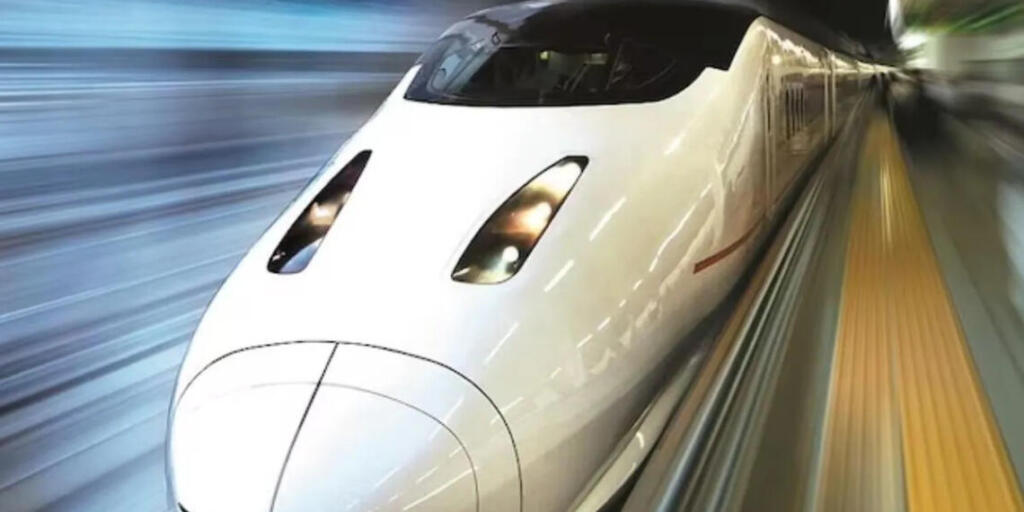Recently, the central government has announced the initiation of feasibility studies for bullet train corridors in the northern, southern, and eastern regions of the country. The aim of this significant initiative is to provide a new dimension to regional connectivity and economic activities across various parts of the country. In South India, three potential routes are being planned for their capacity to transform regional connectivity and economic activities.
Chennai-Coimbatore-Kochi-Thiruvananthapuram Corridor
Chennai, the largest industrial and commercial hub in South India, is renowned for its automobile manufacturing, medical tourism, hardware manufacturing, data centers, and fintech industries. This city holds immense economic and cultural importance.
Coimbatore, known as the “Manchester of South India,” is a major industrial center with a significant presence in the textile and engineering sectors. It is home to some of Asia’s largest garment manufacturing companies and exports hosiery fabrics to various countries. The city also houses numerous small-scale engineering companies and is one of India’s major gold jewelry manufacturing hubs.
Kochi, a key port city, serves as a gateway for robust maritime economy and international trade. The primary business sectors here include construction, shipbuilding, seafood and spice exports, and the chemical industry. Thiruvananthapuram, the capital of Kerala, is an important administrative and cultural center, also known for its natural beauty and tourist attractions.
This 850-kilometer-long corridor will promote economic integration among these diverse South Indian cities, enhancing the pace of business travel and trade. Companies based in Chennai will be able to collaborate more effectively with Coimbatore’s industrial partners and utilize Kochi’s port facilities for international exports. Administrative functions in Thiruvananthapuram will also benefit from better access to the rest of the region.
Hyderabad-Bengaluru-Mysuru Corridor
Hyderabad, the capital of Telangana, is a major economic and cultural center with a strong information technology (IT) industry. The city hosts the largest campuses of tech giants like Google, Facebook, Microsoft, Amazon, and Apple.
Bengaluru, the world’s fastest-growing tech hub, houses research and development (R&D) centers for Amazon, Microsoft, Facebook, and Google. The city’s IT sector employs over 4 million people across India.
Mysuru is also known for the operations of major IT companies such as Infosys, Wipro, and L&T Infotech. It is home to significant manufacturing units like BEML, KSIC, and Larsen & Toubro. Bengaluru and Mysuru are the two cities that contribute the most to Karnataka’s economy.
This 600-kilometer bullet train corridor will significantly reduce travel time between these dynamic cities, boosting economic cooperation. Hyderabad and Bengaluru’s tech industries will benefit from more efficient business travel and resource sharing, while Mysuru’s industry and tourism will gain easy access to these metropolitan areas.
Visakhapatnam-Amaravati-Hyderabad Corridor
Visakhapatnam, a major port city, is known for its steel plant and shipyard. Amaravati, the de facto capital of Andhra Pradesh, is envisioned as a modern, green, and sustainable city. Hyderabad, as a major economic and cultural center, completes this 700-kilometer-long route.
This corridor can link Visakhapatnam’s industrial strengths with Amaravati’s administrative functions and Hyderabad’s technological capabilities. Improved connectivity will balance regional development, encourage investment in Amaravati’s ambitious urban projects, and leverage Visakhapatnam’s port facilities for trade. The route can also facilitate the exchange of ideas and resources, fostering economic growth in the region.
Conclusion
Overall, the introduction of bullet trains not only catalyzes development along their routes but also encourages ancillary activities in the surrounding regions. Through these bullet train corridors, South India can experience a new impetus in regional connectivity and economic activities, leading to unprecedented growth in business, tourism, and industrial sectors. This initiative can add a new chapter to India’s economic and social development.
